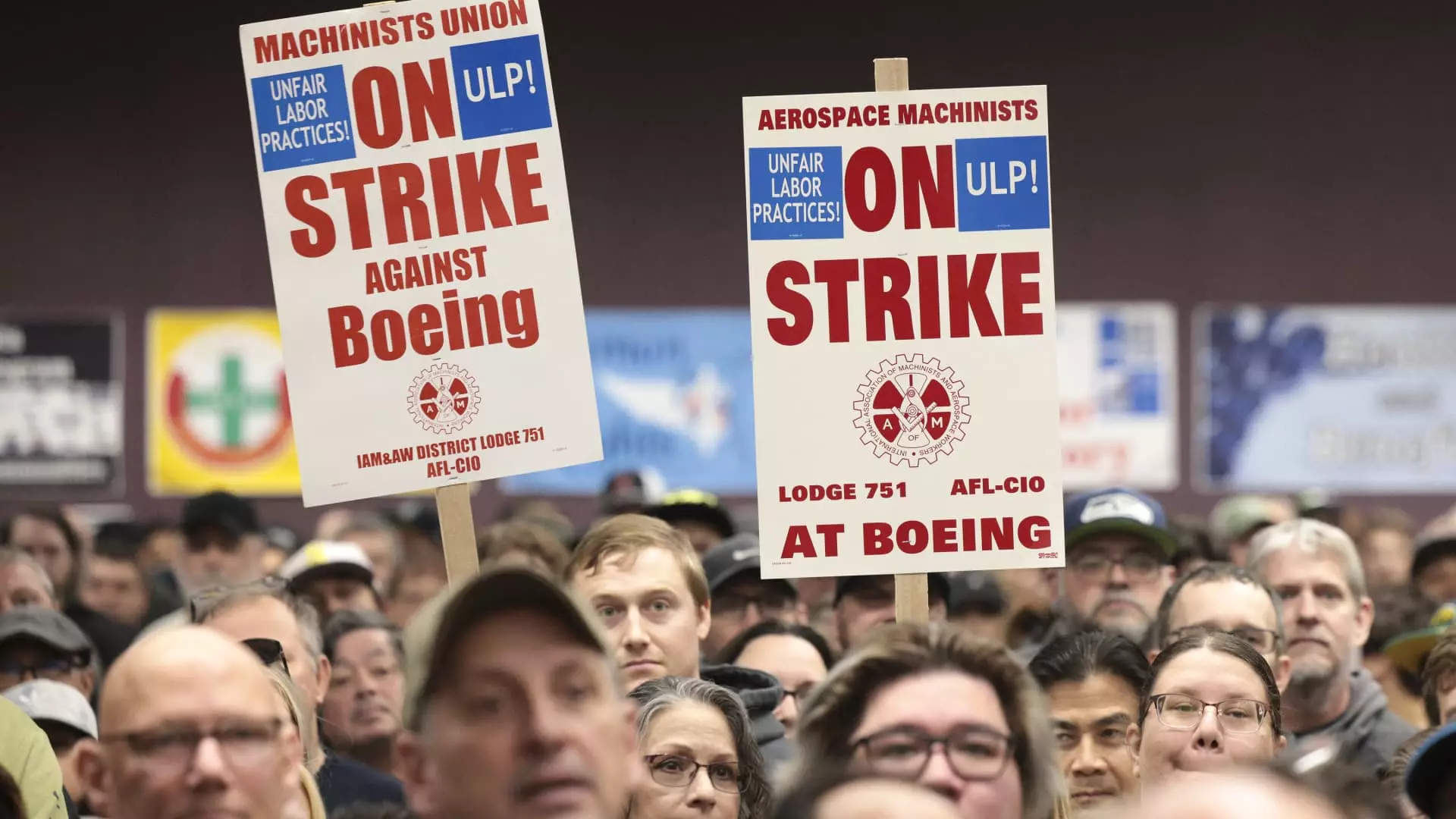The ongoing strike involving Boeing’s machinists represents a significant chapter in the relationship between the aerospace giant and its labor force. Beginning on September 13, after a previous agreement was rejected, the strike has brought aircraft production to a standstill, affecting both the company’s financial health and industry operations. Over 30,000 machinists, represented by the International Association of Machinists and Aerospace Workers District 751, initially found the proposed 25% wage increase insufficient, calling for more robust negotiations. This labor action highlights the tension between Boeing’s corporate decisions and the demands of its workforce.
Boeing and the machinists’ union have recently crafted a new contract proposal that could potentially resolve the strike. Key elements of this agreement include a substantial wage increase of 35% developed over four years, a purported $7,000 signing bonus, as well as guaranteed minimum payouts in an annual bonus program. Additionally, the proposal features increased contributions to 401(k) plans, signaling a commitment to improving long-term financial security for employees. Such conditions are crucial in an environment where economic instability is a persistent concern for workers on the shop floor.
A significant aspect of the negotiation process was the involvement of Acting U.S. Secretary of Labor Julie Su, who met with both parties. Her engagement underscores the importance of governmental oversight in labor disputes, especially in high-stakes industries like aerospace. The union’s statement praising the negotiated proposal indicates that, despite prior frustrations with negotiations, progress has been made that is considered worthy of union members’ attention. This political dimension adds another layer to the resolution process, highlighting how labor relations can benefit from federal involvement.
While the proposed contract holds promise, it comes at a critical time for Boeing as it faces numerous challenges. The company reports significant financial losses due to a string of safety issues, most notably a severe incident involving its 737 Max fleet earlier this year. With projected losses around $5 billion looming in both its commercial and defense sectors, the urgency to conclude the strike is palpable. Ratifying the new contract is seen as a lifeline for Boeing, particularly for its new CEO Kelly Ortberg, who is under pressure to restore stability and regain the trust of both investors and employees.
The impending ratification vote scheduled for Wednesday will be pivotal for the future of Boeing and its workforce. If the contract is approved, it not only signifies a resolution to a month-long impasse but also sets the stage for a potential reformation of the company’s approach to labor relations. With Ortberg’s recent strategic announcements regarding layoffs and the cessation of 767 production, the focus will undoubtedly shift to how Boeing can reposition itself as a competitive player in the aerospace market while ensuring the welfare of its employees. As both sides prepare for this critical vote, the outcome may determine not only the future of Boeing’s operations but also the broader landscape of labor relations in the industry.


Leave a Reply